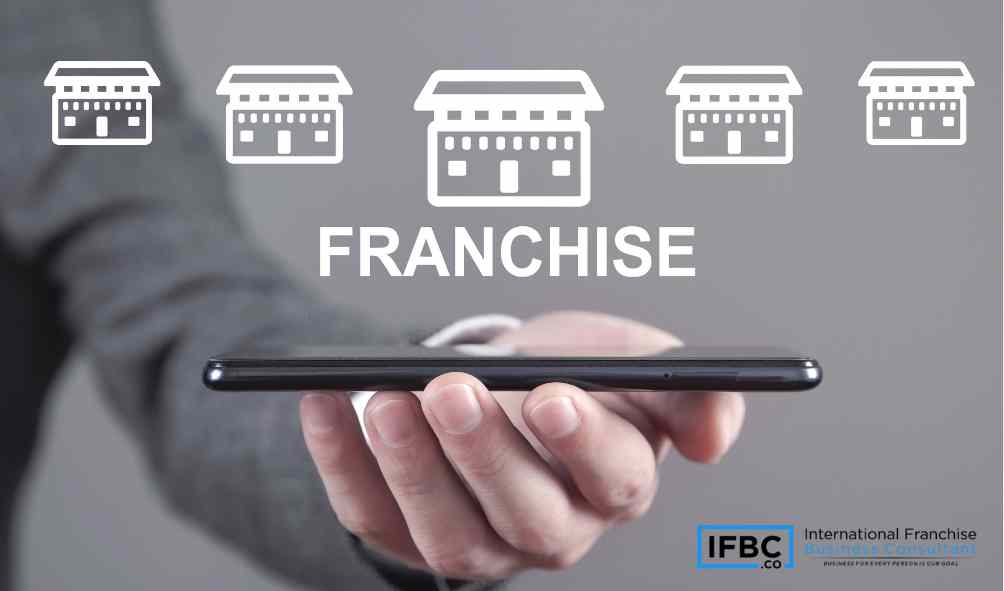Franchising has become a popular avenue for aspiring entrepreneurs looking to start their own business while benefiting from the support and resources of an established brand. Franchise investment is not a decision to be taken lightly.
Let’s explore the factors that make franchises an attractive investment option as well as potential considerations that investors should keep in mind.
What is a Franchise Business?
A franchise business is a business model where an entrepreneur (franchisee) purchases the right to use the name, branding, and business model of an established company (franchisor) in exchange for fees and ongoing royalties.
Franchisees operate their businesses under the established brand’s guidelines and standards, benefiting from the franchisor’s proven methods, marketing support, training, and sometimes exclusive territories. This arrangement allows franchisees to leverage the brand’s reputation and customer base while minimizing some of the risks associated with starting a new business from scratch.
Franchising spans various industries, including fast-food restaurants, retail outlets, service-based businesses, and more, offering entrepreneurs a pathway to business ownership with a level of support and structure provided by the franchisor.
Benefits of Investing in Franchises
Franchises are attractive to business owners because they offer the following benefits:
1. Established Brand Recognition: Franchises typically boast widespread brand recognition, fostering immediate trust and familiarity among consumers. This pre-existing reputation can significantly reduce the time and effort required to build brand awareness, enabling franchisees to hit the ground running.
2. Proven Business Model: Franchisors have already navigated the turbulent waters of business operations, refining their strategies and processes to achieve optimal efficiency and profitability. By adopting a tried-and-tested business model, franchisees mitigate the risks associated with launching a new venture from scratch.
3. Training and Support: Franchisors often provide comprehensive training programs and ongoing support to franchisees, equipping them with the knowledge and skills necessary for success. From initial setup to day-to-day operations, this support network serves as a valuable resource for navigating challenges and maximizing potential.
4. Access to Economies of Scale: Franchise systems leverage economies of scale to negotiate favorable terms with suppliers, access bulk discounts, and implement centralized marketing campaigns. As a result, franchisees can benefit from cost savings and enhanced competitiveness compared to independent businesses.
5. Reduced Risk: Compared to starting an independent business, investing in franchise entails a lower degree of risk. The established brand, proven business model, and ongoing support provided by the franchisor can help shield franchisees from many of the pitfalls that plague startups.
6. Higher Success Rate: Statistics suggest that franchises have a higher success rate compared to independent businesses. This is due in part to the support and guidance provided by the franchisor, as well as the established brand reputation that attracts customers.
Factors to Consider Before Investing in Franchise
Investors should carefully consider a number of factors before investing in a franchise:
| 1. Personal Suitability: | Assess your skills, interests, and aptitudes to determine whether a particular franchise aligns with your strengths and preferences. Passion for the brand and industry can significantly enhance your chances of success. |
| 2. Market Demand: | Conduct thorough market research to gauge demand for the franchise’s products or services in your target location. Assess the competitive landscape and identify potential niches or untapped opportunities. |
| 3. Financial Considerations: | Evaluate the financial feasibility of the investment, considering both upfront costs and ongoing expenses. Consult with financial advisors and accountants to develop a realistic budget and financial projections. |
| 4. Franchise Agreement: | Carefully review the terms and conditions outlined in the franchise agreement, paying close attention to royalty fees, territorial rights, renewal options, and exit strategies. Ensure that your rights are fully understood and protected by seeking legal counsel if necessary. |
| 5. Research and Due Diligence: | Scrutinize the franchisor’s track record, reputation, and support infrastructure. Reach out to existing franchisees to glean insights into their experiences and satisfaction levels. |
| 6. Support and Training: | Assess the franchisor’s support and training offerings, including initial training, ongoing support, and access to resources like marketing materials and technological assistance. A franchisor with comprehensive support can boost your chances of success and help overcome challenges. |
Best Franchise Consulting Company in USA
If you’re considering investing in franchises and seeking expert guidance to navigate the complexities of the franchising landscape in the USA, look no further than the International Franchise Business Consultant (IFBC). With our wealth of experience and industry knowledge, we’re dedicated to helping investors like you find the best franchise opportunities that align with your goals and preferences.
Whether you’re a seasoned entrepreneur or new to business ownership, our team of experts is here to provide personalized guidance, conduct thorough market research, and ensure that you make informed decisions every step of the way. Feel confident about your franchise success by contacting us today.
Determining whether franchises are a good investment isn’t straightforward. While they offer benefits, they also come with risks. Prospective investors must research, evaluate personal suitability, and assess financial readiness.
Franchising is a dynamic field with potential for success, but it requires careful navigation. Ultimately, the decision rests on balancing opportunity and risk with informed judgment.


